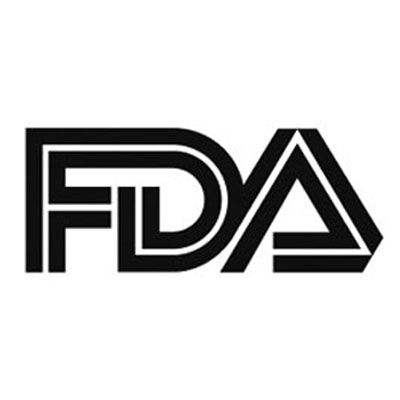FDA Expanded Approval for Preventative Vaccine of HPV-Associated Oropharyngeal and Other Head and Neck Cancers
“Today’s approval for the prevention of HPV-related oropharyngeal and other head and neck cancers represents an important step in Merck’s mission to help reduce the number of men and women affected by certain HPV-related cancers.”

The FDA has approved an expanded indication for GARDASIL 9 for the prevention of oropharyngeal cancers, as well as other head and neck cancers, caused by human papillomavirus (HPV) types 16, 18, 31, 33, 45, 52, and 58, announced Merck.
The indication for GARDASIL 9 was approved under an accelerated approval based on the vaccine’s effectiveness in preventing anogenital disease related to HPV. Based on the verification and description of clinical benefit in a confirmatory study, there may be continued approval for this indication.
“At Merck, working to help prevent certain HPV-related cancers has been a priority for more than two decades,” said Alain Luxembourg, MD, PhD, director, Clinical Research, Merck Research Laboratories, in a statement. “Today’s approval for the prevention of HPV-related oropharyngeal, and other head and neck cancers represents an important step in Merck’s mission to help reduce the number of men and women affected by certain HPV-related cancers.”
The vaccine is indicated for the prevention of cervical, vulvar, vaginal, anal, oropharyngeal and other head and neck cancers caused by the indicated HPV types in women aged 9 years to 45 years. It is also indicated in these women for cervical, vulvar, vaginal, and anal precancerous or dysplastic lesions that have been caused by HPV types 6, 11, 16, 18, 31, 33, 45, 52, and 58, as well as genital wards caused by HPV types 6 and 11.
For men who are 9 to 45 years old, GARDASIL 9 is approved for prevention of anal, oropharyngeal and other head and neck cancers related to HPV types 16, 18, 31, 33, 45, 52, and 58. It is also indicated for the prevention of anal precancerous or dysplastic lesions caused by HPV types 6, 11, 16, 18, 31, 33, 45, 52, and 58 in this population, as well as genital warts caused by HPV types 6 and 11.
The vaccine is contraindicated in patients with hypersensitivity, such as severe allergic reactions to yeast, or after a dose of GARDASIL 9 or GARDASIL. Observation for 15 minutes after administration of the vaccine is recommended because some may develop syncope, which can result in falling with injury and has been associated with the HPV vaccine.
GARDASIL 9 can be administered with a 2-dose or 3-dose schedule in patients aged 9 to 14 years old, in which the second dose in the 2-dose schedule should be administered 6 to 12 months after the first dose or a third dose should be given at least 4 months after the second dose if the second is administered less than 5 months after the first dose. Patients aged 15 to 45 years old should receive GARDASIL 9 on a 3-dose schedule at 0, 2, and 6 months, which is also the recommended dosing for the younger age group who receives the vaccine on a 3-dose schedule as well.
Although oropharyngeal cancers caused by HPV can occur in both men and women, it is 5 times more common in men compared with women. HPV tends to clear on its own in most cases, but it can cause certain cancers among some patients in which HPV is not cleared.
Oropharyngeal cancer may be caused by HPV infection in the oropharynx, including the soft palate, side and back wall of the throat, tonsils, and back one-third of the tongue. The United States Centers for Disease Control and Prevention demonstrated in a recent model that oropharyngeal cancers caused by HPV are the most prevalent type of HPV-related cancers in the country, surpassing cervical cancer in frequency as well, according to an assessment of the incidence of HPV-associated cancers and the annual number of cases between 2012 and 2016. This assessment looked at the incidence of cancers caused by HPV overall in the United States, as well as by state during this time period. The estimated number of these cancers was calculated by multiplying the average number by the percentage of those diagnosed from 1993 to 2005, which was prior to the availability of the HPV vaccine in the United States.
Under the new indication for GARDASIL 9, it is stated that this vaccine does not eliminate the necessity for patients to undergo screening for cancers after receiving the vaccine. It has not been demonstrated to protect patients against other disease caused by other HPV types or types to which a patient has been previously exposed. Additionally, HPV does not cause all vulvar, vaginal, anal, oropharyngeal, and other head and neck cancers. This vaccine protects patients from vulvar, vaginal, anal, oropharyngeal, and other head and neck cancers caused by the HPV types 16, 18, 31, 33, 45, 52, and 58, specifically.
Reference
FDA approves Merck’s Gardasil 9 for the prevention of certain HPV-related head and neck cancers. News Release. Merck. June 12, 2020. Accessed June 12, 2020. https://bit.ly/30IZLjL
Neoadjuvant Therapy Could Improve Outcomes for Nasal and Paranasal Sinus Cancer
September 17th 2024Neoadjuvant chemotherapy prior to surgery and postoperative radiation therapy could improve organ preservation in patients with T3 and T4a nasal and paranasal sinus squamous cell carcinoma.
Read More